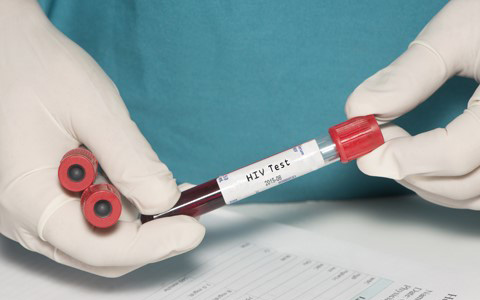Background
Project acronym: EURESIST
HIV is not curable but it is treatable, states Dr Francesca Incardona, CEO of EuResist Network GEIE and research area manager at Informa s.r.l, the SME responsible for coordinating the EuResist project. The thirty-month initiative was devoted to providing better treatment by implementing an intelligent system that uses patients’ clinical information together with viral genetic data.

‘Choosing the best treatment for a specific person can be very challenging. The antiviral drugs designed to help deal with HIV are numerous, and furthermore the HIV virus evolves very rapidly so that each person hosts slightly different mutants of the wild virus, with a different response to the various drugs,’ says Dr Incardona. ‘Some viruses become resistant to several drugs and doctors may encounter many difficult situations.’
Drug resistance is the main source of treatment failure today in western countries. There are numerous antiviral drugs that can be used, and in most cases, it is relatively simple to treat a patient at the onset by prescribing a cocktail of antiviral drugs. Such treatment success is usually short-lived. The virus evolves and becomes resistant to the medicine. When doctors choose new medicines to combat the disease, they may find that the viral population (the mutated viruses hosted by the specific patient), is already resistant to the treatment. EuResist was launched with the objective to collect as much data as possible in order to understand how patients fare under this particular virus.
The vision behind the EuResist project was to create a system with the ability to learn from real data through smart modelling techniques in order to help doctors choose the best treatment for a particular patient with a given viral population and resistance profile more accurately than before.
The achievement of the project was based on two key outcomes. First, an integrated database was created, which is among the largest HIV resistance databases available today with over 62,000 patients. It is used by hundreds of countries and contains such data as patient information, drug therapies and AIDS defining events.
Second, a prediction engine was developed based on the database, which examines data that is given online and foresees how treatment will work best. The engine boasts a high accuracy percentage (77-78%) in predicting the right treatment. Increasing this percentage remains challenging, as it cannot be done simply by populating the database. ‘What we believe will drastically change the accuracy is to consider the profile of the human immune system,’ underlines Dr Incardona.
This system enables more effective patient care and considerably reduces the prohibitive international therapy management costs. Designed to offer more treatment options to patients, the EuResist system can contribute towards saving lives. Furthermore, reducing the possibility of choosing wrong treatment leads to a better quality of life and to the decrease of expenses.
Dr Incardona puts the system’s added value into perspective. A 10% yearly increase in the number of effective treatments in an area where 10,000 patients are being treated with a success rate of 80% would result in the reduction of the final treatment failure rate from 20 to 12%. Based on this, an additional 800 patients would benefit from effective therapy every year. ‘Using a system with this modest rate of increase in successful treatment on a large scale can make a considerable difference when we consider that around eight million patients are under treatment in low- and middle-income countries and more will be put on treatment every year,’ she adds.
The EU’s funding instrument was vital in getting the project off the ground. When it ended, the EuResist Network was set up, an entity which involves most of the initial project partners. The large amount of data collected is highly valued by pharmaceutical companies, and paid studies are carried out if approved.
Dr Incardona stresses that additional public financing at this stage is necessary to continue to build on achievements. The broader research aims of the project, such as further efforts to make it applicable to third world countries, require funding which private companies and organisations cannot allocate.
Dr Incardona aspires ‘to increase accuracy by considering the patient’s genetics, particularly that of the immune system.’ Furthermore, the EuResist Network plans to use similar models in other domains like hepatitis, and to adapt the system for users in third world countries who are most in need.
This innovation was made possible by Israel’s continued participation in the official Horizon 2020 fund, managed in Israel by ISERD part of The Israel Innovation Authority (Formerly the Office of the Chief Scientist and MATIMOP). The initiative has taken Israeli R&D to the next level with the help of ground-breaking collaboration between scientists in Israel and Europe, as well as essential funding and support.
Project details
Project acronym: EURESIST
Participants: Italy (Coordinator), Israel, Sweden, UK, Germany, Hungary
FP7 Proj. N° 027173
Total costs: € 2 973 442
EU contribution: € 2 143 000
Duration: January 2006 – June 2008
